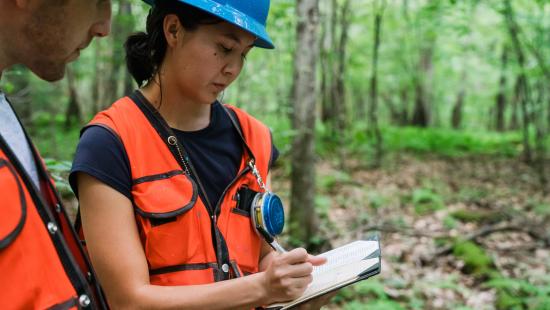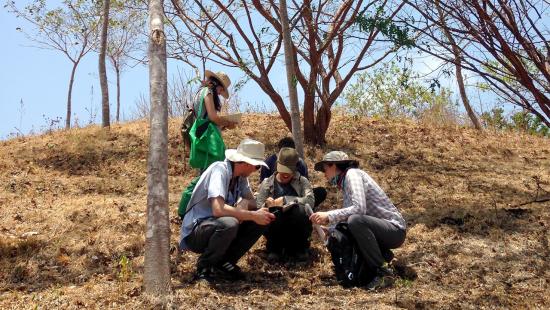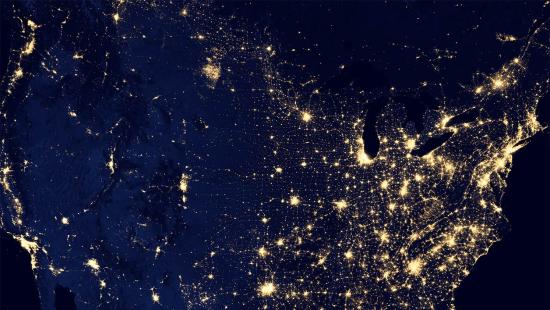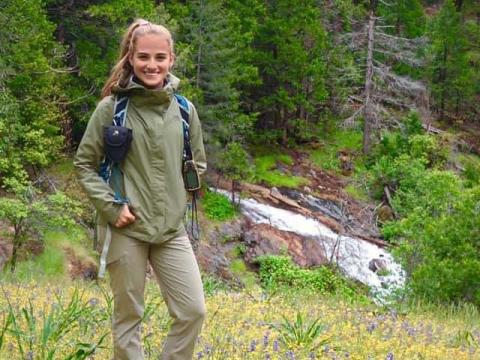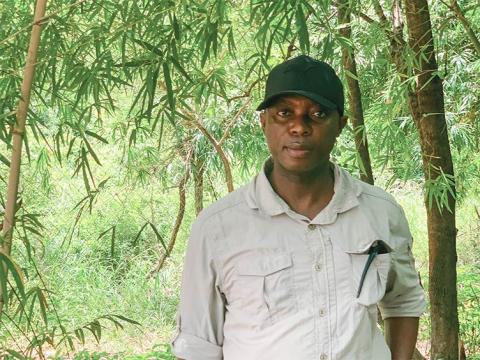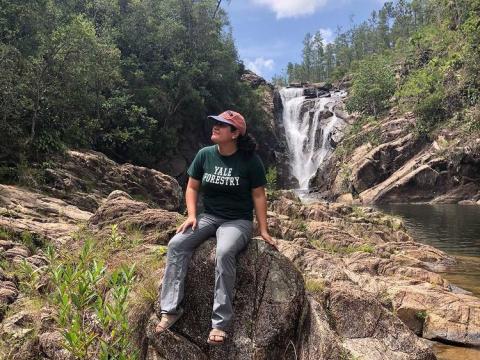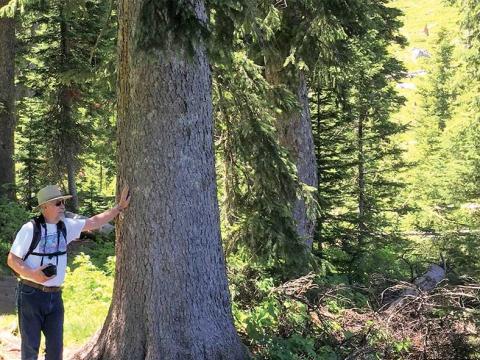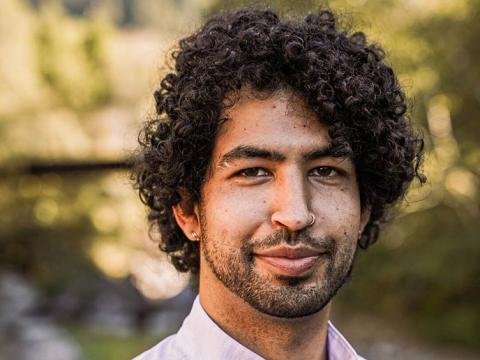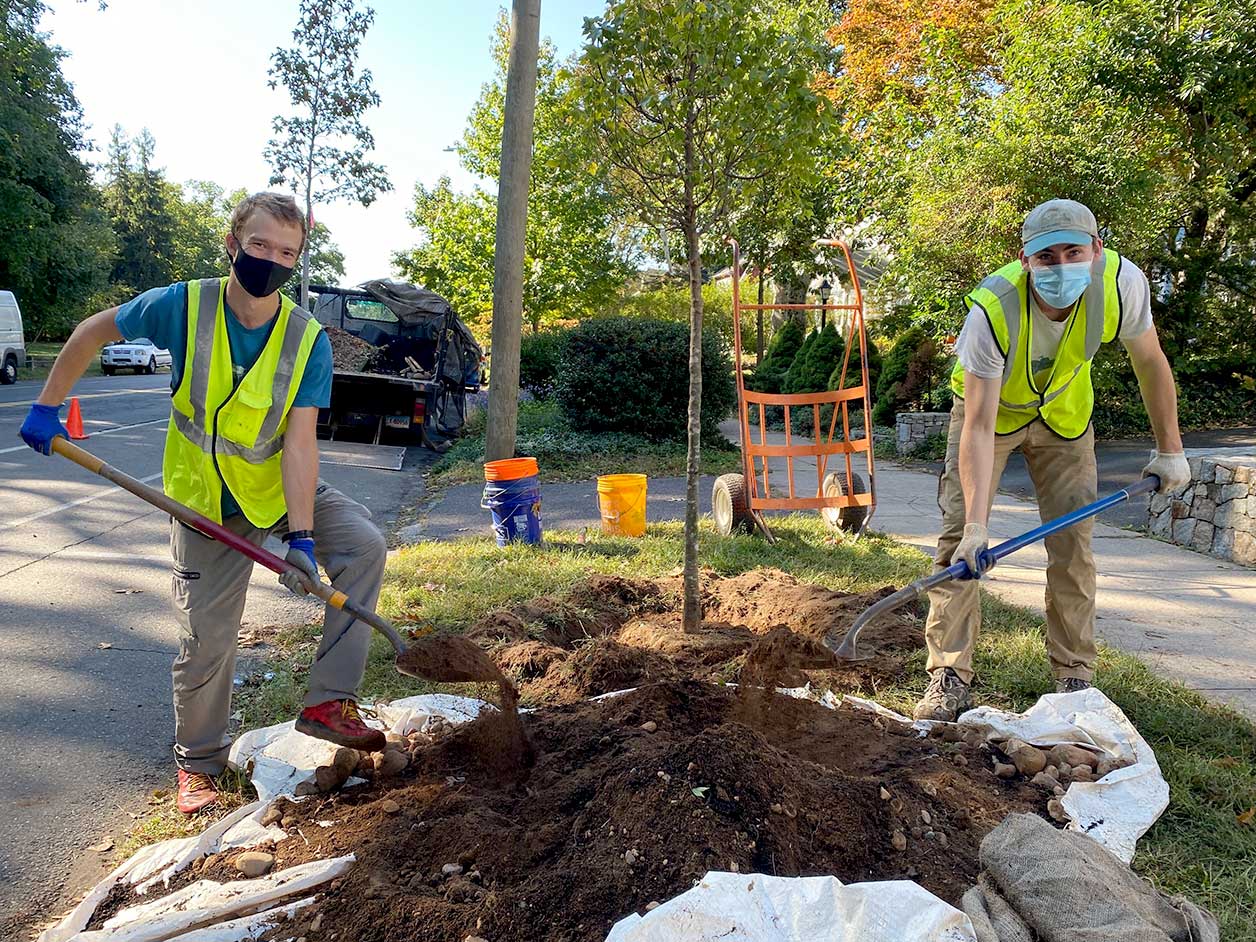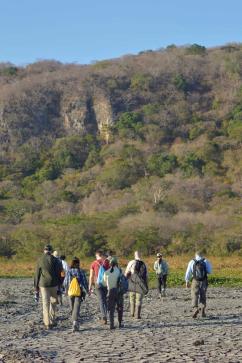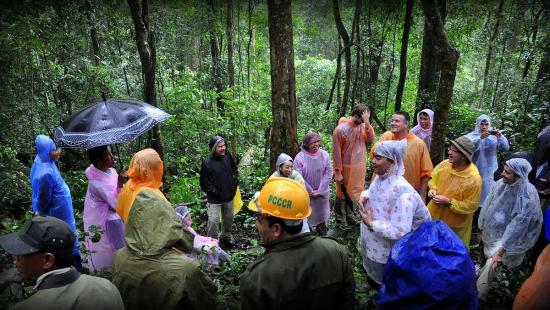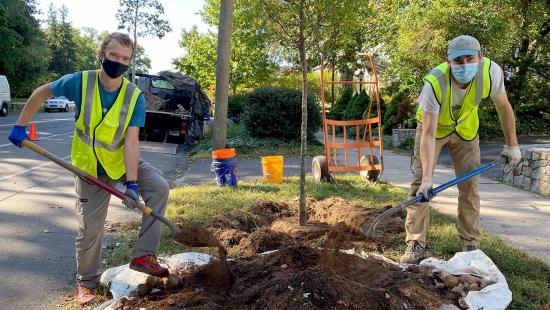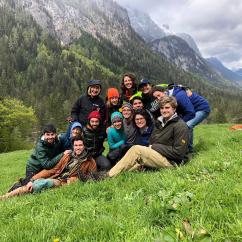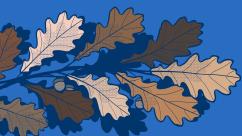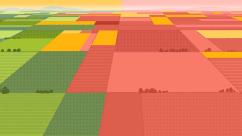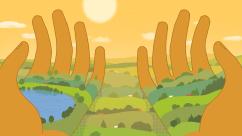Education
The Forest School prescribes the curriculum for two of the master’s degrees granted by the Yale School of the Environment and hosts a cohort of forestry-related PhD students.
On This Page
Experiential Learning
The Forest School offers a myriad of experiential learning opportunities for students, including field trips, stakeholder and community engagement, on-the-ground research at multiple local and international sites, and a summer forest apprenticeship. The summer apprenticeship is a 12-week program held each summer at Yale-Myers Forest that trains students in forest management and land stewardship. TFS also offers an urban apprentice program through the Urban Resources Initiative’s GreenSkills program where students help plant trees and care for New Haven’s urban forests.
Opportunities for Funding and Assistantships
A variety of funding is available to students through fellowships, grants, and awards.
Community Resources
YSE offers a wide variety of resources for students, including the Yale Forest Forum speaker series, learning communities that offer robust interdisciplinary experiences and networks, and Student Interest Groups (SIGs), where students can explore shared interests. Forest-focused SIGs include the International Society of International Foresters (ISTF), Yale Temperate Forestry (YTF), the Society for Ecological Restoration (SER), and the FIRE SIG. Additionally, the Diversity, Equity and Inclusion Office works to ensure that all students feel welcome.
Student and Alumni Impacts
Yale Forests — Training & Teaching Forests
Yale Forests cover nearly 11,000 acres in seven forests across New England, providing educational and research opportunities focusing on science-based management to promote ecological regeneration. At 7,840 acres, Yale-Myers is the largest of the seven School-owned forests and the single largest piece of property used for educational purposes by Yale University.
Explore Our Forests
Forest Apprenticeship Program
This 12-week program held each summer at Yale-Myers Forest, with field trips to northern forests in New England, trains up to 12 students in forest management and land stewardship and covers land use history and social dynamics, dendrology, forest inventory, silviculture prescriptions, timber harvest plans, regeneration, and technical skills, including road maintenance. Students also can train in the Pacific Northwest and South.
The Forest School In Action
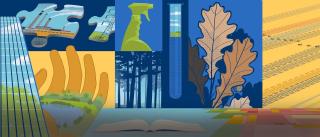
Learning Communities
YSE’s learning communities were created to offer robust interdisciplinary experiences and networks. The Forest School students often participate in the Forestry, People, Equity and the Environment, and Ecosystem Management and Conservation learning communities. They are all open to students from all degree programs.
